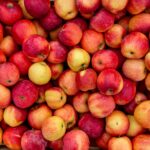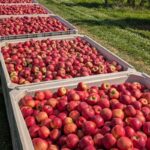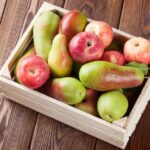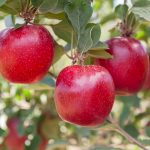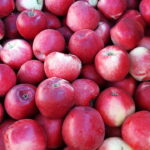Frost takes its toll on European apple forecast

The World Apple and Pear Association (WAPA) has predicted a 21% fall in the EU apple harvest this year, while the drop in pears is expected to be minor at 1%. 
During today's Prognosfruit Conference in Lleida, Spain, WAPA claimed the expected harvest decline to 9.34 million metric tons (MT) - mainly the result of spring frosts - left room for "careful optimism" following difficult years where the Russian ban on EU fruit has led to an imbalance in supply and demand.
"A particular point of concern this year was the intense frost during blossoming, and the drought during spring and early summer," WAPA said in its report.
"More specifically about the EU apple market, it is to be reminded that, over the last years, the market suffered the consequences of the Russian embargo and were more recently confronted by lower export volumes to North African markets.
"The new crop could therefore lead to a better balance of the supply. The market will start clearing stocks for most varieties, with [an] expected good hand over from the Southern Hemisphere."
The association added the new season was due to start two weeks earlier than average, while the year-on-year volume reductions would differ between varieties, such as Golden Delicious (-18%), Gala (-3%), Idared (-30%), Red Delicious (-9%) and new/club varieties (-15%).
"There might be different market trends for each of the varieties, with better balance for Gala and more reduced volume for Golden or Jonagold, and Elstar," WAPA said.
"In the coming weeks, growers will closely monitor the quality, which could still influence the balance of the market between fruit destined for the fresh market and the fruit destined for processing.
"It is currently forecasted that ca 6.200.000 T will be moving on the fresh market and 3.200.000 T for processing."
Out of the EU's leading producers the sharpest percentage fall is in Germany, where producers in the Lake Constance region were particularly hard hit by the spring's weather events. The country is set to have a 46% reduction in volume down to 555,000MT.
The bloc's leading producer Poland is set for a 29% fall to 2.87 million MT, Italy's crop will be cut by 23% to 1.757 million MT, while the impact in France is less pronounced with an 8% reduction to 1.4 million MT.
"In other non-EU Northern Hemisphere countries, significant decreases were noted: Russia (-37%), Mexico (-30%), Switzerland (-21%), Belarus (-19%), Ukraine (-10%), and Canada (-5%), while the USA is expecting a stable crop around 4.800.000 T," WAPA added.
Outlook not so pear-shaped
In pears the expected volume is set to be down only slightly at 2.15 million MT, however bigger declines are expected for the Conference variety (-7%) and the William BC cultivar (-6%).
In contrast, Abate Fetel production is set to rise by 12% to reach 332,000MT, and this is reflected in a 6% increase in production for the EU's leading pear grower Italy at 719,000MT.
Portugal is set for a phenomenal jump of 64% in its volume to 186,000MT, Spain is set to remain stable at 312,000MT, while reductions are set for the Benelux region with the Netherlands down 18% at 307,000MT and Belgium down 7% at 301,000MT.
"In regard to the specifics, the market will be experiencing different trends between the Southern and Northern EU markets, reflected as well in higher volume of Abate and Rocha, while the Conference pear will be down," WAPA said.
"The pear season will start with less pressure than last year. There has been some positive development in the exports to new markets during the last years, but the effects of the Russian embargo will still be felt by the growers.
"Elsewhere in the Northern Hemisphere, crops increased, compared to last year, in Turkey (+11%), Canada (+20%) and Moldova (+50%), whilst decreases are estimated for the production in Russia (-37%), Belarus (-20%), Switzerland (-34%), and the US (-3%)."
Photo: www.shutterstock.com
















